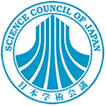Fragmentation Methods, Their Fundamentals and Application in Proteomics
One-day course

Instructor:
Professor Roman A. Zubarev, Karolinska Institutet, Stockholm, Sweden
Schedule:
Sat., Sep. 15, 2012, 10.00 am - 17.00 pm
Fragmentation of biomolecules in tandem mass spectrometry is the basis for structure identification of polypeptides, which is a cornerstone of proteomics. The excitation methods for fragmentation fall into three categories: slow or rapid heating, electronic excitation, and radical initiation. What happens to a peptide when it is excited by one of the three methods? What makes the bond break and the molecule fall apart? Why do negative ions fragment differently than positive ions? How fast does bond rupture happen and how much energy is required? The answer to these questions will be given during the course. Collisional dissociation in an ion trap or by infrared irradiation (slow heating), collisions in a qTOF or Orbitrap instrument (rapid heating), ultraviolet dissociation (electronic excitation), electron capture/transfer dissociation and electron ionization dissociation (radical initiation) will be discussed. On a practical note, real-life examples of peptide fragmentation will be considered, MS/MS spectra explained, and de novo sequencing illustrated. Analysis of peptide modifications will also be considered in detail.
Maximum capacity of participants:
70
Fee:
Regular 10,000 JPY; Student 5,000 JPY.


